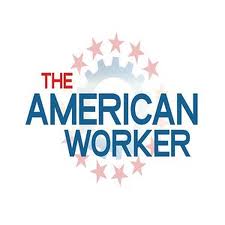
The Scared Worker (Sep 02, 2013) Reported By Real Clear Politics By: Robert Samuelson - September 2, 2013 Posted by American News Online WASHINGTON -- On this Labor Day, American workers face a buyers' market. Employers have the upper hand and, given today's languid pace of hiring, the advantage shows few signs of ending. What looms, at best, is a sluggish descent from high unemployment (7.4 percent in July) and a prolonged period of stagnant or slow-growing wages. Since 2007, there has been no gain in average inflation-adjusted wages and total compensation, including fringes, notes the Economic Policy Institute, a liberal think tank. The weak job market has a semi-permanence unlike anything seen since World War II, and the effects on public opinion extend beyond the unemployed. "People's expectations have been really ratcheted down for what they can expect for themselves and their children," says EPI economist Lawrence Mishel. There's a sense "that the economy just doesn't produce good jobs anymore." Possible job loss becomes more threatening because finding a new job is harder. Says Paul Taylor of the Pew Research Center: "Security is valued more than money because it's so fragile." What's occurring is the final breakdown of the post-World War II job compact, with its promises of career jobs and something close to "full employment." The dissolution of these expectations compounds stress and uncertainty. Over the past century, we've had three broad labor regimes. The first, in the early 1900s, featured "unfettered labor markets," as economic historian Price Fishback of the University of Arizona puts it. Competition set wages and working conditions. There was no federal unemployment insurance or union protection. Workers were fired if they offended bosses or the economy slumped; they quit if they thought they could do better. Turnover was high. Less than a third of manufacturing workers in 1913 had been at their current jobs for more than five years. After World War II, labor relations became more regulated and administered -- the second regime. The Wagner Act of 1935 gave workers the right to organize; decisions of the National War Labor Board also favored unions. By 1945, unions represented about a third of private workers, up from 10 percent in 1929. Health insurance, pensions and job protections proliferated. Factory workers laid off during recessions could expect to be recalled when the economy recovered. Job security improved. By 1973, half of manufacturing workers had been at the same job for more than five years. To avoid unionization and retain skilled workers, large non-union companies emulated these practices. Career jobs were often the norm. If you went to work for IBM at 25, you could expect to retire from IBM at 65. Fringe benefits expanded. Corporate America, unionized or not, created a private welfare state to protect millions from job and income loss. But in some ways, the guarantees were too rigid and costly. They started to unravel with the harsh 1981-82 recession (peak monthly unemployment: 10.8 percent). As time passed, companies faced increasing competition from imports and new technologies. Pressure mounted from Wall Street for higher profits. In some industries, labor became uncompetitive. Career jobs slowly vanished as a norm; managers fired workers to cut costs. Unions provided diminishing protection. In 2012, they represented only 6.6 percent of private workers. Old organized sectors (steel, autos) have shrunk. New sectors, from high tech to fast food, have proved hard to organize. Companies have ferociously resisted. Now comes the third labor regime: a confusing mix of old and new. The private safety net is shredding, though the public safety net (unemployment insurance, Social Security, anti-poverty programs, anti-discrimination laws) remains. Economist Fishback suggests we may be drifting back toward "unfettered labor markets" with greater personal instability, insecurity -- and responsibility. Workers are often referred to as "free agents." An article in the Harvard Business Review argues that lifetime employment at one company is dead and proposes the following compact: Companies invest in workers' skills to make them more employable when they inevitably leave; workers reciprocate by devoting those skills to improving corporate profitability. "The new compact isn't about being nice," the article says. "It's based on an understanding that a company is its talent, that low performers will be cut, and that the way to attract talent is to offer appealing opportunities." Workers can't be too picky, because their power has eroded. Another indicator: After years of stability, labor's share -- in wages and fringes -- of non-farm business income slipped from 63 percent in 2000 to 57 percent in 2013, reports the White House Council of Economic Advisers. But an even greater decline in 22 other advanced countries, albeit over a longer period, suggests worldwide pressures on workers. Take your pick: globalization; new labor-saving technologies; sluggish economies. Workers do best when strong growth and tight markets raise real wages. On Labor Day 2013, this prospect is nowhere in sight. |